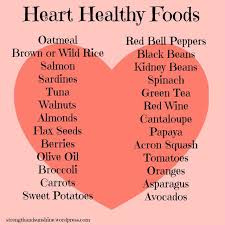
Diagnosed with Cancer? Your two greatest challenges are understanding cancer and understanding possible side effects from chemo and radiation. Knowledge is Power!
Learn about conventional, complementary, and integrative therapies.
Dealing with treatment side effects? Learn about evidence-based therapies to alleviate your symptoms.
Click the orange button to the right to learn more.
- You are here:
- Home »
- Blog »
- side effects ID and prevention »
- Cardiac Rehab for Cancer Survivors-
Cardiac Rehab for Cancer Survivors-

Cardiac rehab for cancer survivors is not just a good idea, it is essential. I say this as a long-term cancer survivor who was diagnosed with chemotherapy-induced cardiomyopathy fully 15 years after I underwent 4 different known cardiotoxic chemo regimens. They were “known” to my oncologist but not to me…
Conventional oncology has little if any interest in identifying and treating the damage done by the therapies that they prescribe. I am an excellent example of this.
More importantly, conventional oncology has short window in which they view possible adverse events. For chemotherapy-induced cardiomyopathy, i(CIC)t may be 5-10 years.
Again, as my case illustrates, CIC can rear its ugly head by 15 years. I believe that there are cancer survivors walking around 20 or more years after they underwent cardiotoxic therapy, only to develop heart problems decades post therapy. After all, old people develop heart problems all the time.
In addition to encouraging cardiac rehab for cancer survivors I want to offer evidence-based non-conventional cardiac rehab. The non-conventional cardiac rehab that I have been doing day-in, day-out since I decided not to put any conventional heart meds into my body.
While there are a host of cardiotoxic chemo regimens in use today, I need to mention the ones that I was prescribed that led to my chemotherapy-induced cardiomyopathy.
- Vincristine
- Doxorubicin
- Cytoxan/cyclophosphomide
- Busulphan
- Melphalan
What are some types of cardiac rehabilitation for cancer patients?
- Exercise Training:
- Aerobic Exercise: Activities such as walking, cycling, and swimming to improve cardiovascular fitness.
- Resistance Training: Strength-building exercises to improve muscle mass and endurance.
- Flexibility and Balance Exercises: Stretching and balance exercises to improve overall mobility and reduce the risk of falls.
- Education and Counseling:
- Heart Health Education: Information on how cancer treatments can affect heart health and how to manage these risks.
- Lifestyle Counseling: Guidance on nutrition, smoking cessation, and weight management to support overall cardiovascular health.
- Stress Management: Techniques such as mindfulness, meditation, and relaxation exercises to manage stress and emotional well-being.
- Medical Management:
- Monitoring and Management of Cardiovascular Risk Factors: Regular monitoring of blood pressure, cholesterol levels, and glucose levels.
- Medication Management: Adjustments and recommendations for medications to manage heart conditions or reduce the risk of heart issues.
- Nutritional Support:
- Dietary Counseling: Tailored nutrition plans to support heart health and manage side effects of cancer treatments.
- Hydration Management: Ensuring adequate fluid intake to support overall health.
- Psychosocial Support:
- Support Groups: Connecting with other cancer patients undergoing cardiac rehabilitation.
- Mental Health Services: Access to psychologists or counselors to address anxiety, depression, or other emotional challenges.
- Survivorship Care:
- Long-term Monitoring: Ongoing assessment of heart health as part of survivorship care plans.
- Follow-up Care: Regular check-ups to monitor for late-onset cardiotoxicity from cancer treatments.
- Telehealth Services:
- Remote Monitoring: Use of technology to track health metrics and provide virtual consultations.
- Home Exercise Programs: Customized exercise routines that can be done at home, with remote guidance from healthcare providers.
- Multidisciplinary Approach:
- Collaboration with Oncology and Cardiology Specialists: Integrated care plans involving oncologists, cardiologists, physiotherapists, dietitians, and mental health professionals.
So what is a cancer survivor to do? Take me seriously when I say that cardiac rehab for cancer survivors is critical. Please include evidence-based heart healthy nutritional supplementation, as I do, in order to keep your heart as healthy as possible.
If you are a cancer survivor interested in learning for about evidence-based non-conventional heart healthy therapies email me at David.PeopleBeatingCancer@gmail.com
Hang in there,
David Emerson
- Cancer Suvivor
- Cancer Coach
- Director PeopleBeatingCancer
Heart doctors recommend cardiac rehab for cancer patients
“Cancer patients and survivors are often at high risk of heart disease, so heart and cancer doctors should consider providing cardio-oncology rehabilitation as patients move through their cancer treatment, the American Heart Association (AHA) urges in a new scientific statement…
Exercise is one of the best ways to protect the whole person and get them through treatment,” Gilchrist, the statement’s lead author and also chair of the AHA’s Exercise, Cardiac Rehabilitation and Secondary Prevention Committee, said in a phone interview. “Cardiac rehabilitation is one of the ways to systematically engage patients in an exercise program and look at the other factors they may be dealing with, such as uncontrolled blood pressure or depression.”
Gilchrist and her colleagues decided to write the statement after seeing research emerging in the past year about increased cardiovascular risk for breast, prostate and colorectal cancer patients…
As cancer survival rates have improved, more than 17 million U.S. cancer survivors now face a two- or three-fold increased risk for heart disease and two- to 18-fold increased risk of hypertension and diabetes, the authors note in the journal Circulation…
Under cardio-oncology rehabilitation, the authors write, doctors would identify patients at a high risk for heart disease, especially those exposed to high doses of cardiotoxic chemotherapy or radiation. Then they would implement a multi-level approach to cardiac rehabilitation, which includes exercise, nutritional counseling and management of weight, blood pressure, cholesterol, diabetes and smoking. In addition, they would recommend psychosocial management in relation to depression, anxiety, social isolation, marital stress, sexual dysfunction and substance abuse…


